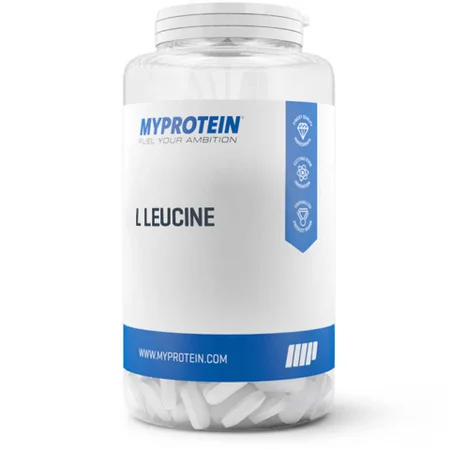
Leucine is an essential amino acid for the body. Essential amino acids are those acids which the body cannot produce and are required to be consumed through diet or supplementation. There are 9 essential amino acids and Leucine is one of the most important one.

Consumption of Leucine is usually accompanied with protein, as it is an integral part of protein diet.
Leucine forms part of BCAA (Branched Chained Amino Acids), which are three in number namely Leucine, Isoleucine, & Valine. These BCAAs are the major ones that get oxidized into skeleton tissue during ATP production.
Leucine & BCAAs
Leucine is the primary component in BCAA. BCAAs are great for MPS (Muscle Protein Synthesis) but Leucine is far more potent that the other two in stimulating MPS. Whey protein is a great source of BCAAs and particularly Leucine.
Researches have shown that Leucine is able to stimulate mTOR (mechanistic Target of Rapamycin) and is the only amino acid to which mTOR is sensitive to.

Research has shown that low levels of Leucine signals mTOR to be disabled as there is a lack of dietary protein to synthesis skeleton muscles. On reaching sufficient levels of Leucine, mTOR are activated and they start developing overall protein synthesis.
An increase in mTOR activities helps to build more muscles.
Benefits of Leucine
Muscle Formation
Leucine is one of the most important amino acid required for protein synthesis. Leucine increases the rate of MPS faster than any other amino acid thereby promoting more muscle mass. For this reason, Leucine is an important constituent of whey protein.
A study was conducted where the rate of MPS was studied; animals were fed with various formulations of amino acids and the results were compared with glucose ingestion. Firstly, a complete protein having all amino acids was given and the MPS levels were noted. After that, only essential amino acids were given and the MPS spike levels were the same. The study proposed to supplement with BCAAs and it was found that MPS levels remained the same. Lastly, only Leucine was given and even then the MPS levels obtained were same. The study concluded that Leucine is the driving factor of MPS.
mTOR Activation
A number of studies strongly suggested that Leucine activates mTOR, which is a particular switch that switches on the factory that produces muscles. The role of Leucine is not only limited in being the driver for protein synthesis but it also regulates the process. So, the higher the levels of Leucine, the more muscle formation there is.

Weight Loss Whilst Maintaining Muscle Mass
A large number of studies have been carried out to prove this fact. Research at University of Illinois on weight loss was conducted. A group was given 10 grams of Leucine per day with 125 grams of protein daily. It was made sure that every single diet has at least 2.5 grams of Leucine content in that. The study results were that higher levels of Leucine helped to lower the weight without muscle breakdown.
Cholesterol Regulation
“Medicine & Science in Sports & Exercise” conducted a study on rats in May 2009. The study showed that rats that were supplemented with Leucine had increased blood levels of high-density lipoprotein cholesterol (good cholesterol).Rats who were consuming high fat foods were subjected to changes occurring due to Leucine.
Leucine Dosage
Leucine dosage is a debatable topic. Consumption of 2.5 grams of Leucine has shown increase in MPS. Some scientists’ advice a total intake of 10 grams of Leucine per day divided across meals.

The best way to consume Leucine is to add it as a intra workout in the form of BCAAs. 5 grams can be consumed as intra workout and within 30 minutes of workout, 10 grams shall be consumed . However it has to be noticed that if whey is your post workout shake, it does have higher levels of Leucine(100 grams has 10 grams Leucine) . Leucine should be the part of every meal and preferably every meal should contain at least 2.5 grams of Leucine.
Leucine Side Effects
Effect on B-Vitamins: Excess dosage of over 30 grams daily of Leucine has shown adverse effects on Vitamin B6 and Vitamin B3. Excess Leucine inhibits the body’s ability to produce these vitamins and later on it leads to deficiency diseases.
Insulin Production under Diabetes Treatment: Consumption of Leucine with a source of glucose, increases insulin levels increase and decreases blood sugar level. Consumption of Leucine along with diabetic medication including insulin injections may let the blood sugar levels to a real low. Patients suffering from Hypoglycemia should not intake supplementation Leucine.










